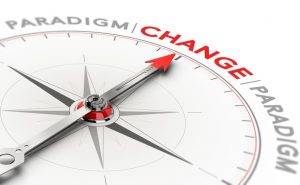 olivier26@123rf
olivier26@123rf
In the opening decade of the 2000s, there were calls from multiple quarters to shift the organizing center of the alcohol and other drug (AOD) problems field from a focus on addiction-related pathology and the nuances of clinical intervention to a focus on personal, family, and community recovery (See HERE, HERE, and HERE). We spoke of recovery as the next frontier,new paradigm, and anew governing image for the field. There were contemporaneous calls for a radical style of recovery advocacy (See HERE).
Recovery from severe AOD problems has long been depicted as a personally transformative experience, but to what extent is the very idea of recovery a revolutionary concept--a catalytic fulcrum for transforming AOD-related social policies and service practices? Such a full embrace of recovery as an organizing paradigm within the AOD problems arena and its related subsystems would have far-reaching consequences. It would:
*Shift the roots of the field's knowledge base from one of expert proclamation to the integration of professional/scientific knowledge and experiential knowledge, the latter necessitating representation of people with lived experience of addiction and recovery at all levels of policy and practice decision-making.
*Challenge the objectification, demonization, and criminalization of people experiencing AOD problems, and expose the historical roots of such processes as tools of racial/class/gender oppression.
*Transfer primary AOD problem ownership from religious/moral and criminal arenas to the arenas of public health, personalized medicine, and mutual help enterprises and reallocating public and private financial resources in ways that would dramatically alter the fate of institutional/community economies, whole professions, and personal careers.
*Spark interrogation of the field's dominant language, including the purging of stigmatizing language (e.g., alcohol/drug/substance "abuse"/"abuser") and infusing a new recovery-focused lexicon.
*Shift the field's kinetic ideas and slogans from the nature of the problem ("addiction is a disease") and the promotion of particular interventions ("treatment works") to the living proof of a permanent solution to AOD problems ("recovery is a reality"; "recovery is contagious").
*Challenge public and professional pessimism ("Once an addict; always an addict") by illuminating the scientific evidence of widespread recovery prevalence ("Recovery is the norm, not the exception") and promote platforms for professional and public recovery storytelling that illuminate diverse pathways and styles of recovery.
*Portray recovery as a time- and stage-dependent process requiring support during the stages of active addiction and precovery (e.g., harm reduction, outreach, and early intervention) and long-term support following recovery initiation and stabilization (e.g., sustained recovery check-ups and support).
*Shift the understanding of recovery and related services from an event focus (i.e., a point-in-time personal decision or a time-limited professional intervention) to a lifelong process of health management, e.g., analogous to the personal and professional management of other chronic health vulnerabilities such as diabetes or hypertension. (This would entail a radical redesign of addiction treatment in the United States; See HERE and HERE.)
*Expose community conditions in which addiction flourishes and that constitute obstacles to personal/family/community recovery. (Full and sustained exposure of such conditions would pose a threat to numerous community institutions, including the alcohol, tobacco, and pharmaceutical industries and licit institutions that profit from illicit drug economies.)
*Focus attention on the expansion of community spaces/landscapes in which recovery can flourish.
*Shift the emphasis and focus of clinical assessment of AOD problems from a focus on addiction-related pathology to an inventory of internal and external recovery assets (i.e., recovery capital), and shift the service relationship from one of professional domination to a sustained recovery support partnership respecting the right of choice of people seeking resolution of AOD problems.
*Extol the role of people in recovery as community assets that enhance community health and vitality via their modeling and service activities.
*Spawn new indigenous recovery support institutionsIndigenous in the sense that they rise from the cultural mobilization of people in recovery. (Such efforts, organized by and for people in recovery, include recovery community organizations, recovery community centers, recovery residences, collegiate recovery communities, recovery-focused workplace initiatives, recovery ministries, recovery cafes, recovery-focused media projects, recovery-focused leisure and entertainment initiatives, and recovery-missioned projects in literature, music, art, and comedy.)
When more than 130 recovery advocates from around the U.S. gathered at the 2001 Recovery Summit in St. Paul, Minnesota, we did so in support of a simple idea: Focus on the solution (resistance, resilience, and recovery) rather than the problem (addiction-related pathology). It turns out this simple idea has quite revolutionary implications. Recovery is more than a metaphor for personal transformation; it can also be a catalyst for the transformation of our communities and social institutions.